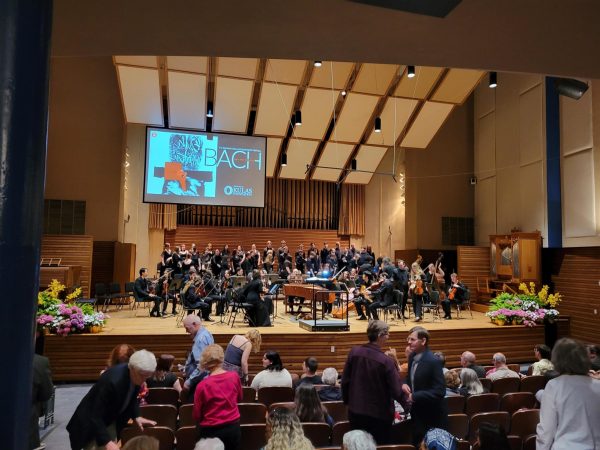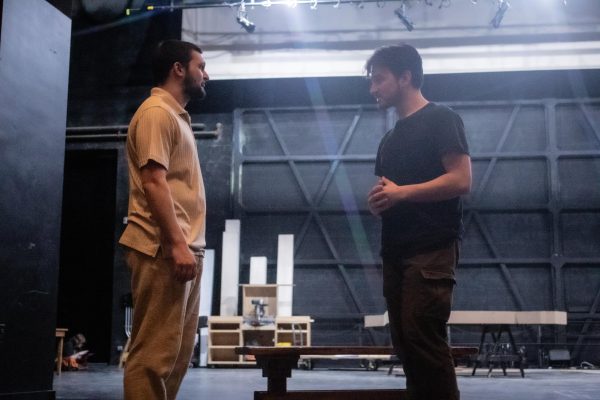Concert uses dance to explore research on transgender issues
Each year, the dance department produces “Fyoo zh en,” a dance concert inspired by the research of a Baldwin Wallace faculty member. “Fyoo zh en ’18: SHAKTI” opened on Wednesday, Feb. 14, and highlighted the research of Swagata Banik, chair of the Public Health and Prevention Sciences Department.
“SHAKTI” seeks to increase awareness and knowledge of transgender issues in India through dance. This particular dance concert was inspired by the lives of the Hijra community in India, and the lack of healthcare professionals that serve them.
The Hijra population are a transgender community that make up about 1.5 million people in India. The Hijra have been around for thousands of years, and identify not as male or female, but as third gender. Their culture has been marginalized as the years have gone on, leaving the community to resort to sex work to support themselves. Because of this, the Hijra suffer high levels of STDs and HIV.
Banik has been studying in the HIV prevention field and working with sexual minorities in India for years.
“The HIV infection rate is much higher in the Hijra community than any other minority group in India,” said Banik, “and the rate for HIV testing is much lower in the Hijra community. Their access to healthcare is also much lower. So, we wanted to see why.”
Banik now has a National Institute of Health-funded study to research the discrimination of the Hijra community in terms of healthcare.
“It explores the nature and extent of discrimination experienced by Hijras in the healthcare sector, and why healthcare providers discriminate, or what is the cause of the stigma in healthcare. We hope to come up with an intervention based on those two things,” Banik explained. “The dance concert is a great way to disseminate and raise awareness about the public health issue and it’s interdisciplinary; two different things working together.”
Sara Whale, Director of “Fyoo zh en ’18: SHAKTI,” agrees that this is an issue that should be brought to light, and was excited to work with Banik’s research.
“It’s a chance for the dancers and choreographers to actually learn about something real, and I think that’s what I love about it the most; we are actually dealing with a real live topic. It’s not something that’s fantasy,” said Whale.
Whale has loved working with the students involved in the production and emphasized their leadership capabilities. Student choreographers, Mawusi Nenonene and Breanna Pacek, student costume designer, Ryan Ginter, and alum, Nora Dlugo have worked with Whale in order to bring the production to life.
“It’s great experience for them to be running their own rehearsals and working with stage managers and interacting with costumes, so I try to give them as much of a hands-on experience as I can in terms of them working independently,” Whale said.
Both Banik and Whale hope to educate the audience on the Hijra culture as well as provide an immersive experience in dance through “Fyoo zh en ‘18.”
“We want to sensitize and change the attitude of the audience,” said Whale. “Come with an open mind and come to your own conclusions. There’s plenty of information about the research in the program, but then try to allow the beauty of the human body moving through space to send you to place where you can be thoughtful about the subject and go away and think about it.”
Banik would like to see his research raise hope for the Hijra community through the dance concert. He wants audiences to take away the message, “By working together with a victimized group, we can empower them.”
“Fyoo zh en ’18” runs February 14-17 at 7:30 p.m. in the Kleist Center for Art and Drama.
The Exponent is looking for financial contributions to support our staff and our newsroom in producing high-quality, well-reported and accurate journalism. Thank you for taking the time to consider supporting our student journalists.












































